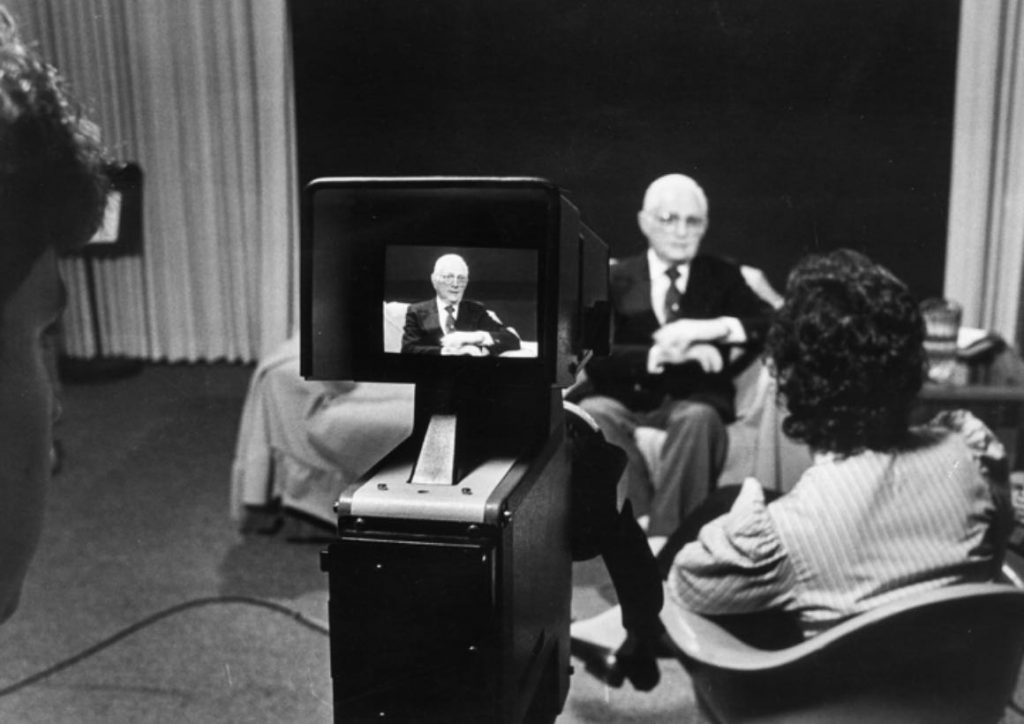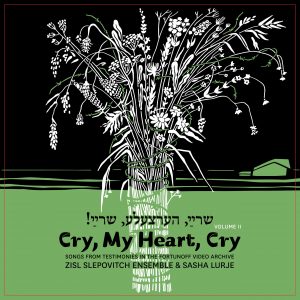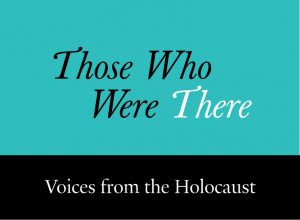The Fortunoff Video Archive for Holocaust Testimonies was formed in 1979 as the Holocaust Survivors Film project under the leadership of Dori Laub and Laurel Vlock, which began videotaping Holocaust survivors and witnesses in New Haven, CT. In 1981, it was transferred to Yale University, where it has been continually developed, growing from an initial collection of 183 testimonies to almost 4,500. The video archive looks to record and preserve Holocaust witness testimonies, which are available for researchers and also for use in education of the public about the Holocaust.
The archive holds 12,000 recorded hours of video material. In the fall of 2021, the Fortunoff archive finalized the process of syncing transcripts (previously solely prepared as written documents) with the video files, making it easier for researchers to access the materials. In addition, there is a small collection of materials relating the the testimony donors.
The Fortunoff Video Archive is one of the leading institutions that document Holocaust testimonies, alongside the USC Shoah Foundation. However, the Fortunoff archive has a different approach to the Shoah Foundation in two key ways:

First, the Fortunoff archive had a different method of recording the testimonies. Whereas the Shoah Foundation recorded its testimonies in survivors’ homes, the Fortunoff archive’s testimonies were recorded in a studio, with a psychoanalyst present. Further, the Shoah Foundation’s testimonies followed a general template or outline (with a focus on three main periods—before the war, during the Holocaust, and the survivor’s experiences in the decades since), whereas the Fortunoff recordings had no specific questionnaire.

Secondly, the Fortunoff archive has shifted away from recording new testimonies with a continued focus on producing content that contextualizes and makes more widely available the testimonies and the historical material contained therein. Such projects include:

- Critical editions of the testimonies, some of which are available online along with video.
- The podcast “Those Who Were There: Voices from the Holocaust, ” which launched its first season in 2020-21 with ten episodes.
- They also have produced a two-volume album and a video series featuring songs from the recorded testimonies.
In 2021, the Fortunoff archive opened an office in Vienna.
Research Notes
The video testimonies through the Yale University Library search; one can search using the keyword “hvt” for “Holocaust Video Testimonies.”
The video files are available for use in person, or online with a Yale ID; there are also 139 access sites at universities and museums where the testimony collection can be utilized.
The Fortunoff Video archive offers numerous research fellowships.
Further Reading
- “A Yale University and New Haven Community Project: From Local to Global.”
- Michael Rothbert and Jared Stark. “After the Witness: A Report from the Twentieth Anniversary Conference of the Fortunoff Video Archive for Holocaust Testimonies at Yale.” History and Memory 15, no. 1 (2003): 85–96.
- Annette Wieviorka. The Era of the Witness. Ithaca: Cornell University Press, 2006.